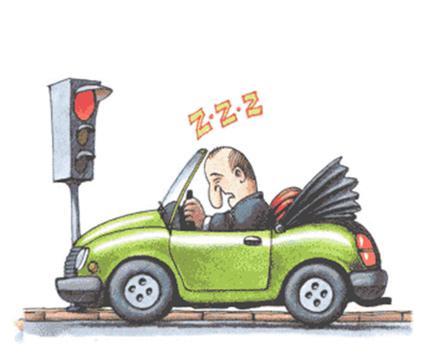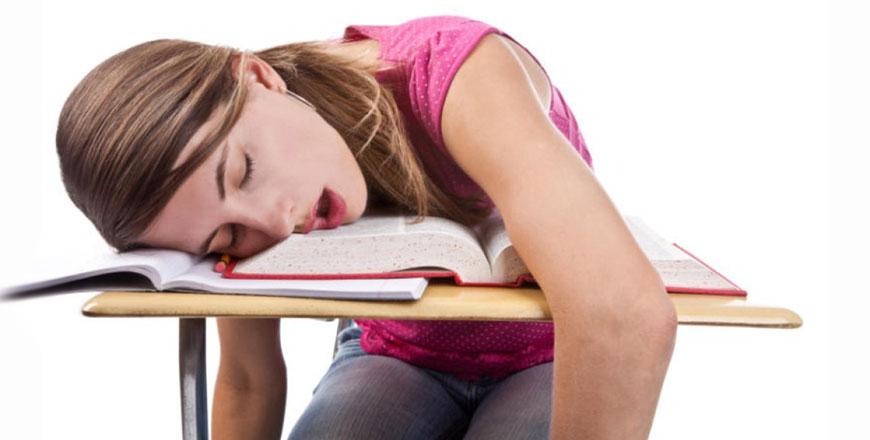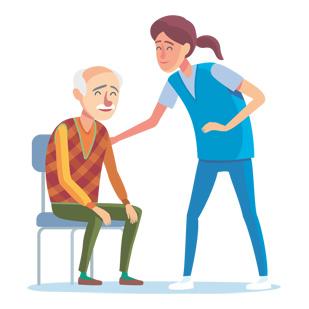You are here
Effects of sleep deprivation could be as risky for drivers as alcohol
By Reuters - Oct 09,2018 - Last updated at Oct 09,2018

Photo courtesy of trafficticketteam.com
Drivers who hit the road on less than four hours of sleep are at least as likely to be involved in a crash as drivers who had too much to drink, a US study suggests.
Brian Tefft, senior researcher at the AAA Foundation for Traffic Safety in Washington, DC, reviewed data on more than 6,800 road accidents between 2005 and 2007 to study the effects of sleep deprivation on driving.
“We really wanted to quantify” the relationship between how sleep-deprived a driver is, and “how much it affects their crash risk”, Tefft told Reuters Health by phone.
As part of an earlier study, the drivers in these accidents had all been interviewed in depth by investigators from the US Department of Transportation. Tefft classified the drivers into those who were “culpable” for a crash and those who were not.
Drivers whose errors, actions, or lack of actions, led to a crash were deemed culpable, whereas those involved in crashes caused by external factors, such as brake failure or poor infrastructure, were not.
His findings showed that people who drove after getting less than seven hours of sleep were at higher risk for being culpable for the crash. That risk was greatest for drivers who slept less than four hours.
“The sharp increase in risk below four hours stands out,” the University of Pittsburgh’s Dr Sanjay Patel, who was not involved in the study, told Reuters Health in an email.
“The odds of being responsible for a crash go up from 2.9-fold to 15.1-fold as sleep drops from four to five hours to less than four hours. But that... is not surprising given what we know about how decreasing sleep affects other aspects of brain function,” Patel said.
Drivers who reported having slept for less than four hours had “crash risks” similar to what is been documented in drivers with blood alcohol concentrations (BAC) of 0.12 g/dL, Tefft notes in his report. In the US, driving with a BAC of 0.08 g/dL or higher is illegal, with lower limits for commercial drivers. Most of Western Europe and Japan have stricter limits.
One weakness of the study is that it relied on drivers themselves to report how much they had slept. Another potential weakness is that other factors, like the presence of a sleep disorder, could contribute to crash risk.
Also, Patel pointed out, “Drivers deemed non-culpable may still have been partially responsible for the crash — they [may have been] slow in veering out of the way of the culpable driver, for example.”
Overall, 78 per cent of non-culpable drivers and 70 per cent of culpable drivers reported having slept for seven to nine hours in the 24 hours before crashing, Tefft reported in the journal Sleep.
The study also found that drivers who had recently changed their sleep or work schedule had about a 30 per cent increase in their risk of causing a crash.
“[This shows that] independently of the effect of sleep deprivation, disruption in the body’s internal clock can also increase one’s risk of causing a crash,” Tefft said.
Drivers who spent less than four hours asleep in a 24-hour period are also at a significantly greater risk of being culpable in a single-vehicle crash than in one that involves another vehicle, the study showed.
Single-vehicle crashes are more than three times as likely as multiple-vehicle crashes to result in fatalities, Tefft said.
Data from the National Sleep Foundation show 60 per cent of US adults have driven while feeling drowsy and around 33 per cent have actually fallen asleep at the wheel.
Benjamin McManus, a researcher in the Translational Research and Injury Prevention Laboratory at The University of Alabama at Birmingham, says Tefft’s study indicates sleep-deprived crashes are not all cases of “nodding off” or being “asleep-at-the-wheel”.
“Judgement and decision making are highly impacted by poor sleep quantity and quality,” McManus said in an email.
“With changes in the work economy and growth of ridesharing, we’re seeing a growth of a ‘gig’ economy where many work from home, work irregular hours, or work multiple jobs. [Data like this] may make the difference between recommendations of ‘you need a cup of coffee’ versus ‘you need a nap.’”
Related Articles
If you thought trying to get a groggy teenager out of bed in time for school each morning was your own private struggle, you thought wrong.
Adolescents who do not get enough sleep may be more likely to develop risk factors for heart disease like high blood pressure and excess bod
Family caregivers for dementia patients don’t sleep as long or as well as other adults of the same age, a new study suggests. In an ana


















